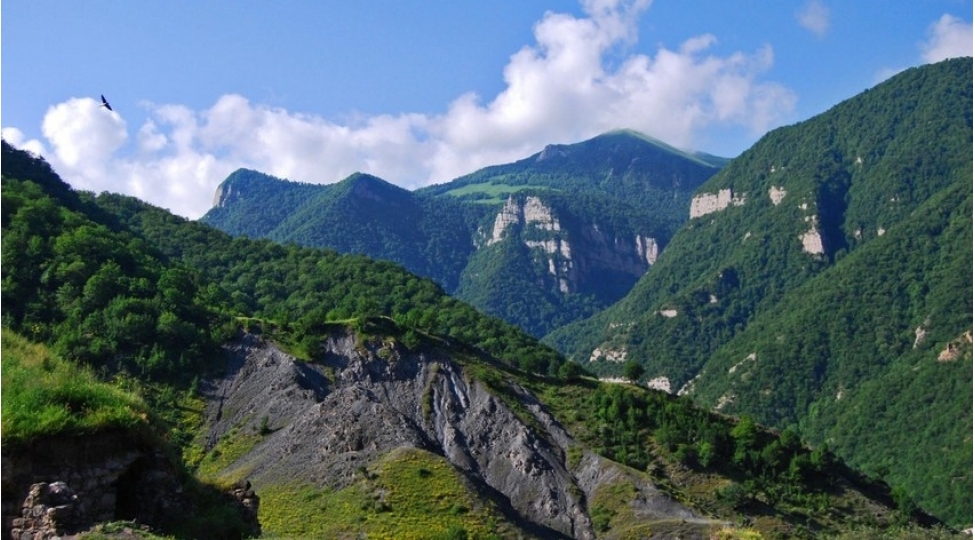Monitoring is important in order to assess the ecological situation in liberated areas
Protection of the environment in our liberated territories, compliance with ecotourism standards and proper use of the region’s potential in this regard are important factors in economic reintegration. The massive return of the population to our liberated territories, the creation of settlements and modern infrastructure there has returned Karabakh to our society. However, the mass settlement of these areas, at the same time, the growing international interest in Karabakh, and the desire of foreign tourists to travel make the setting of tourism, especially ecotourism standards, urgent in the region. From the point of view of the correct assessment and increase of the ecotourism opportunities of Azerbaijan, the topic is very important. Also, it is the job of all relevant state and non-state institutions, as well as every citizen, to help restore control over water resources in Karabakh, maintain the beauty of nature and clean environment, and increase the attractiveness of the country in terms of tourism, especially ecotourism. The opinions and proposals of experts and scientists on the subject are of interest to our society.
Sevil Yuzbasheva, the chairman of the “Eco-Alam” Public Union, who gave us her opinion on the subject, thinks that environmental protection in the country, especially the environment in liberated areas and compliance with ecotourism standards has always been relevant and has always been brought up by environmental associations. According to him, in general, there is no water body in the world that is not shirked: “In particular, based on my information and what I have seen, I can say that there is no water basin in the country that is not polluted. The facts about the Caspian Sea are known. As for rivers, they are subject to pollution and littering throughout the country. Those who use the water of the rivers and engage in business and farming activities expose the water to chemical pollution, and the communities living on the banks of the rivers discharge their household waste into the rivers, canals, ditches. The cause of all pollution is the lack of environmental education of our people. This is due to the fact that he does not have an ecological culture, and basically does not have an ecological consciousness. We keep our house clean, we don’t think about the cleanliness of our street, city, and most importantly, our country. The reason for this is the problems related to waste management. This is an important problem that needs to be solved in the country.”
One of the important nuances related to the topic is the extent to which tourism centers operating in ecotourist places control the maintenance of the ecological environment. We often witness that those tourist centers in different parts of the country do not have any concept of cleanliness. Of course, such cases would be a bad example for touristic and ecotourism places that will operate in our liberated areas. According to the opinion of the expert who shared his views on this, the situation is also tense in ecotourism places. For example, in a number of cases, hotels and cottages are built and operate in beautiful touristic areas, where cleanliness and environmental factors are not taken into account. The population living in those areas also shows indifference in such matters. Those who carry out tourism business in those areas are not responsible for the cleanliness of the area. If you’re going to make a profit here, try to control the area and keep it clean. But don’t take it from one side and put it on the other side, solve the problem from the root. Personally, whenever I go to a beach area, the first thing I do is to collect the trash aside so that the sea water doesn’t wash it away. Several times we held an event in Absheron National Park with schoolchildren, we collected garbage brought by the waters on the shore of the Caspian Sea. I should also mention that the area of that park is an ecologically clean area.
What measures should the relevant institutions take to protect the cleanliness of ecotourism sites? What issues should be taken into account more in this regard? The expert notes that, first of all, it is necessary to strengthen activities in the field of waste collection and processing. Waste must be managed. The process of waste management is understood as the activity process in which these wastes are generated, as well as activities on their collection (collection), sorting, transportation, placement and processing, use, disposal, neutralization and burial. During waste management, it is possible to obtain recycled raw materials, and business activities can be built on it. This issue has already been resolved in a number of developed countries. There are good examples. In many countries, the problem of waste is already regulated: law-abiding citizens themselves sort the garbage and throw it in different bins, which are then sent for separate recycling according to their type. But in countries with a low level of civilization, people can only wish for such a situation: “In countries like ours, as before, special people are engaged in sorting garbage with old rules. Waste can be used to produce various products or to generate energy by incineration. Believe that if the places are clean, the ecotourism potential of our areas will increase many times.”
A lot of work should be done to protect the environment and water bodies in the liberated areas. The expert says that once in Karabakh, the hated enemy not only killed our people, destroyed our houses and cities, but also committed serious crimes against nature. They committed environmental terrorism in Karabakh as a whole. After liberation from occupation, the relevant institutions have carried out a series of monitoring for the purpose of assessing the environmental situation. Cases of over-polluting and poisoning of Okchuchay, destruction of our precious forests, cutting down of our thousand-year-old monumental trees, etc. was observed. At present, the nature of Karabakh is undergoing resuscitation and experiencing the process of healing and recovery. Baby fish are released into water bodies, trees are planted. It is necessary to constantly monitor the ecological situation here. The origin and source of water basin pollutants should be determined and the consequences of pollution should be eliminated.”
The article was prepared within the framework of the “Ecotourism standards in liberated areas” project implemented by the Public Union of Integration to the Globalized World with the financial support of the State Support Agency for Non-Governmental Organizations of the Republic of Azerbaijan. The position of the author or the interviewee and the position of the State Support Agency for Non-Governmental Organizations may not be consistent.


